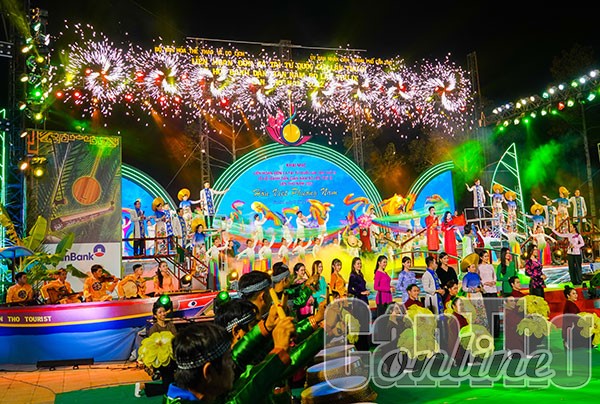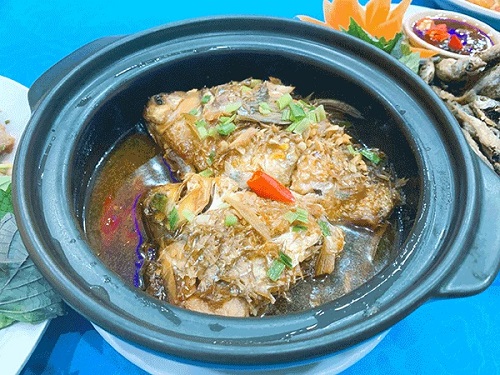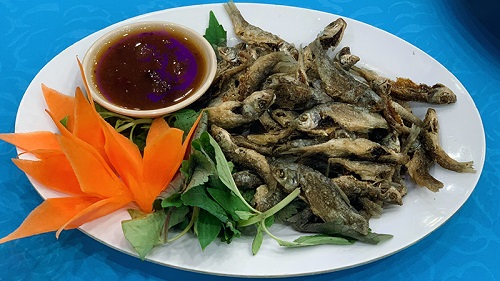
Gradual Formation.
"The Strategy for the Development of Vietnam's Cultural Industry by 2020, with a vision towards 2030," issued by the Government in 2016, identified 12 cultural industries: advertising, architecture, software and entertainment games, handicrafts, design, film, publishing, fashion, performing arts, fine arts, photography and exhibitions, television and radio broadcasting, and cultural tourism. At the 5-year evaluation conference organized by the Ministry of Culture, Sports and Tourism (MCST), the viewpoint that "Developing cultural industry will help Vietnam restructure its growth model, create highly competitive cultural products and services, make positive contributions to the economy, and contribute to building an advanced Vietnamese culture with a strong national identity in the context of transitioning to a socialist-oriented market economy" was once again affirmed.
In Can Tho City, the development of the cultural industry has achieved some initial results. It has socialized performing arts, providing opportunities for the entire society to participate in and enjoy cultural values, and encouraging the development of non-public artistic entities. It has also promoted autonomy in public professional units, tailored to the characteristics of each type. From 2016 to 2022, the city has received and licensed approximately 210 entities to organize artistic performances, fashion shows, and non-public performances within the city.
An increasing number of non-public businesses and artistic entities have emerged. Can Tho currently has over 50 companies and organizations operating in the cultural and artistic fields, specializing in event organization, artistic performances, fashion, cultural tourism, etc. Mr. Nguyen Phu, Director of Tay Do Model Company, is one of the pioneers in the cultural industry in Can Tho, specifically in the fashion industry. According to him, the cultural industry market in Can Tho is not very vibrant, although there is still great potential. Can Tho City does not have cultural enterprises of the scale and size as Ho Chi Minh City or Hanoi. Nevertheless, non-public artistic entities in Can Tho are still striving and gradually asserting their positions. For example, Hong Anh Dance Group, starting as a small dance group, has become a renowned dance troupe in the Mekong Delta region, participating in major events in Kien Giang, Hau Giang, Can Tho, etc. In the film industry, Can Tho provides conditions, mechanisms, and procedures for developing a network of cinemas in supermarkets and shopping centers. The city has five cinemas in Ninh Kieu and Cai Rang districts, with 25 screening rooms equipped with modern digital projectors and a total capacity of over 2,700 seats. On average, about 20 domestic and international film production units come to Can Tho each year for shooting purposes.
Mr. Nguyen Khanh Tung, Director of the Can Tho City Institute for Socio-Economic Development, evaluates: Currently, the cultural industry has become an important economic sector in Can Tho, showing significant development in terms of quality compared to 10 years ago. Can Tho has gradually established its cultural product and service brands. According to Mr. Nguyen Khanh Tung, the advantages and potential for the development of the cultural industry in Can Tho focus on five main pillars: performing arts, eco-tourism, festivals, trade fairs and exhibitions, and historical-cultural sites.
Unleash resources
According to Mr. Nguyen Khanh Tung, the difficulty in Can Tho City lies in the lack of an effective coordinated mechanism for the development of the cultural industry. Specifically, the Department of Culture, Sports, and Tourism manages the fields of performing arts, photography, cinema, copyright, and tourism; the Department of Science and Technology manages technology, science, and intellectual property assets; the Department of Information and Communications manages press, broadcasting, television, and publishing; and the Department of Construction manages architecture. This matter, objectively speaking, aligns with the regulations of the sector in terms of functions and duties.This "division" limits the integration of cultural and economic resources and hinders the creation of commercial and tourism-oriented products. It also fails to provide conditions for private sector participation in creativity and diversification of highly applicable forms of artistic expression in service products.
The public-private cooperation mechanism for upgrading and repairing cultural infrastructure also faces several challenges. For example, there are investors who want to collaborate in renovating the Tay Do Theater using their own funds to operate it as a cinema while still leaving enough space for theater performances and rehearsals. However, they encounter regulations regarding the exploitation of public assets. In addition, according to Mr. Nguyen Khanh Tung, attracting investment in large-scale entertainment and tourism areas in Can Tho has not yielded results due to the requirement for significant investment and long-term commitments. Therefore, businesses require ample time to study the feasibility. The city lacks creative cultural spaces to unleash the talents and dedication of artists and intellectuals. The sports infrastructure is deteriorating and has not received timely investment, repairs, and upgrades, which makes it challenging to organize national and international events. Particularly, there are not many cultural and artistic products available during the nighttime.
In recent years, the concept of the night-time economy has been mentioned as one of the important solutions to attract tourists, create a diverse system of service products, extend the duration of stays, and increase tourist spending. In Can Tho, night-time economic activities include night markets, pedestrian streets, food and entertainment areas, restaurants, karaoke bars, and cinemas. However, these activities are often limited in terms of operating hours, and the services lack distinctiveness.
Mr. Nguyen Khanh Tung provides additional information: Over the years, the average length of stay in Can Tho has not exceeded 2 days, partly due to the city's monotonous nighttime economic activities. Therefore, the development of the nighttime economy in the city is expected to bring about significant changes to the local economy and society, particularly in the tourism sector. The People's Committee of the city has approved the implementation of a pilot project for developing the nighttime economy in Can Tho (specifically in Ninh Kieu District). After nearly 1 year, the project has shown initial effectiveness, with the highlight being the Night Walking Street in Ninh Kieu on Saturday evenings.
Dr. Nguyen Quoc Nghi, from the School of Economics at Can Tho University, also evaluates that there is still ample potential and market for products and services related to the nighttime economy in Can Tho City. It is necessary to study and develop a nighttime economic model that aligns with the local advantages and practical conditions, catering to the demands of the core tourist market. It is important to identify priority areas and streets for nighttime economic development, closely linked to the tourism infrastructure strengths, and determine distinctive products and services. Attracting reputable businesses and commercial entities with experience is crucial for development. Prioritizing the development of traditional cultural and artistic programs and activities, such as don ca tai tu (a traditional musical genre) and cai luong (a form of Vietnamese opera), and enhancing the visitor experience will increase tourist spending.
Mr. Nguyen Phu, Director of Tay Do Model Company, emphasizes the need for collaboration among private artistic enterprises to enhance their strengths. In recent times, some large-scale artistic programs implemented by non-governmental artistic entities have made a significant impact, such as the National Don Ca Tai Tu Festival in 2022 and the Opening Ceremony of the Southern Folk Cake Festival. In the field of performing arts, researcher Nham Hung emphasizes the need for innovation in artistic practices to participate in the cultural market. The socialization of artistic activities is crucial, as it opens up a fair and healthy cultural market, promoting creativity and innovation in the cultural industry. According to Nham Hung, in the development of the cultural industry, the human factor is vital, and one person must play the roles of a manager, organizer, expert, and economist. Successfully implementing the guiding principle that "Culture must be placed on an equal footing with the economy, politics, and society" has been identified by our Party.
Resolution No. 33-NQ/TW, dated June 9, 2014, of the Central Committee of the 11th Party Congress on the construction and development of culture and the Vietnamese people to meet the requirements of sustainable national development, sets the objective: "Building a healthy cultural market, promoting the development of the cultural industry, and enhancing the promotion of Vietnamese culture." When culture and the cultural industry accompany the market economy, they generate soft power and national resources.
Source: Can Tho News - Translated by Hoang Dat












